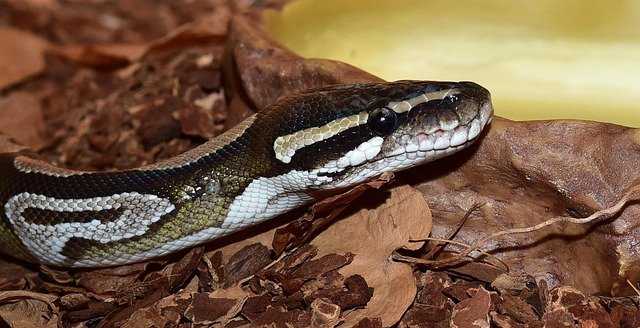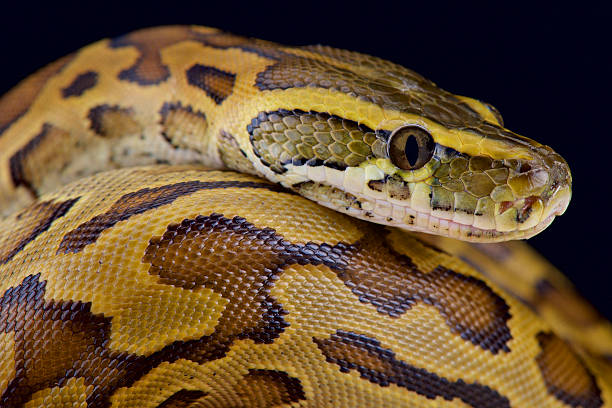Table of Contents
Scientific Classification
| Kingdom | Animalia |
| Phylum | Chordata |
| Class | Reptilia |
| Order | Squamata |
| Family | Pythonidae |
| Genus | Python |
| Species | Python sebae |
| Scientific Name | Python sebae |
Description
The African Rock Python (Python sebae) holds the title of Africa’s largest snake and is recognized as one of the strongest constrictors in the world. With robust bodies and distinctive patterned scales, these pythons display a range of colors from brown to olive-green, allowing them to blend seamlessly into their environment.
Unlike venomous snakes, the African Rock Python relies on its powerful constriction to capture prey. It coils its muscular body around the victim, suffocating it before swallowing it whole. Despite their intimidating reputation, these snakes are typically non-aggressive unless they feel threatened.
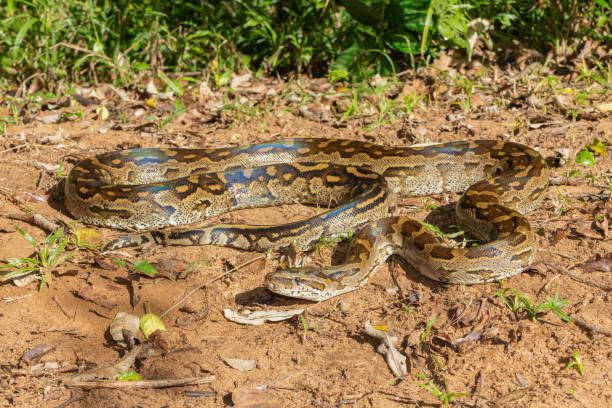
Distribution
The African Rock Python is commonly found throughout sub-Saharan Africa, in countries such as:
Nigeria
Senegal
Ethiopia
Kenya
South Africa
They flourish in a variety of habitats, ranging from arid savannas to lush rainforests. This adaptability makes them one of the most versatile snake species globally.
Habitat
This python species is very adaptable. You can find it in many habitats, such as:
- Grasslands and Savannas – Ideal for ambushing prey in open spaces.
- Swamps and Wetlands – Near water sources where prey is abundant.
- Forests – Providing cover for hunting and protection from predators.
- Rocky Outcrops – Where they can bask and hide in crevices.
They also live close to human settlements. There, they hunt rodents and small pets.
Diet
African Rock Pythons are opportunistic carnivores that hunt a wide range of animals, such as:
Rodents – Particularly rats and mice, which are common in agricultural regions.
Birds – They often target ground-nesting birds and their eggs.
Reptiles – This includes other snakes and various lizards.
Mammals – They may also prey on small antelope, monkeys, and even domestic animals.
These pythons are capable of consuming large prey, allowing them to go for weeks or even months without eating after a successful hunt.
Behavior
- Other notable behaviors include:
- Ambush Hunting – Staying still for extended periods and striking when prey approaches.
- Basking – Soaking up sunlight to help regulate its body temperature.
- Defensive Posture – When feeling threatened, it coils up and hisses loudly to scare off potential attackers.
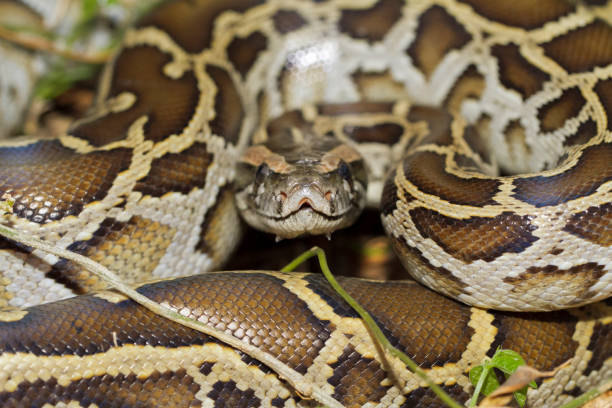
Lifespan
In the wild, African Rock Pythons can live up to 20 years. However, with proper care in captivity, they have been known to survive for more than 30 years.
Reproduction and Lifecycle
Reproduction in African Rock Pythons follows a fascinating process:
- Mating Season – Occurs during the rainy season when food is plentiful.
- Egg Laying – Females lay 20 to 100 eggs in hidden nests.
- Maternal Care – The female snake stays with her eggs. She coils around them to keep them safe from predators.
- Hatching – After 2 to 3 months, hatchlings appear at about 50 cm (20 inches) long. They are independent right away.
Predators
Although African Rock Pythons are apex predators, they do have natural threats, including:
- Large Birds of Prey – Eagles and hawks may prey on young pythons.
- Crocodiles – Occasionally attacking pythons near water sources.
- Humans – The greatest threat, due to hunting for their skins and fear-based killings.
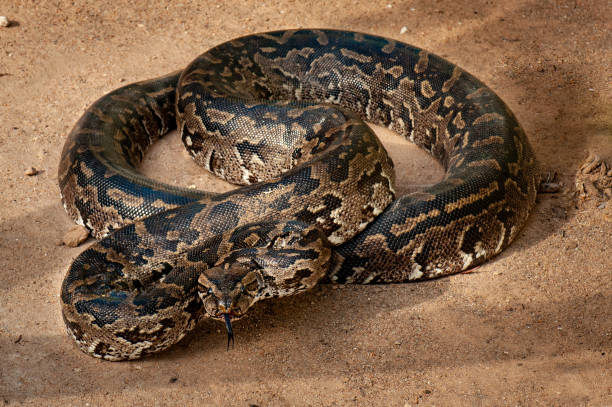
Adaptations
The African Rock Python has developed important adaptations to thrive in different environments:
- Powerful Muscles – Enabling them to constrict and overpower large prey.
- Heat-Sensitive Pits – Allowing them to detect prey even in complete darkness.
- Cryptic Coloration – Camouflaging them from predators and prey.
- Expandable Jaws – Letting them swallow prey much larger than their head.
- Long Fasting Ability – Surviving for months without food when necessary.
Conservation Status
The African Rock Python is currently listed as Least Concern by the IUCN. However, certain populations are declining due to:
- Habitat Destruction – Due to deforestation and urbanization.
- Poaching – Hunted for their skin and use in traditional medicine.
- Human Conflict – Killed out of fear and in retaliation for livestock predation.
Conservation Efforts
- Wildlife Protection Laws – Enforcing bans on hunting and trade.
- Education Programs – Encouraging local communities to coexist with pythons.
- Habitat Conservation – Protecting key ecosystems and wildlife reserves.
Conclusion
The African Rock Python is a remarkable reptile. It helps keep nature in balance by controlling the number of prey animals. They may seem scary, but they are important for Africa’s biodiversity. They need our protection and respect. Thanks to conservation and public awareness, these strong snakes can live in the wild for many years.
